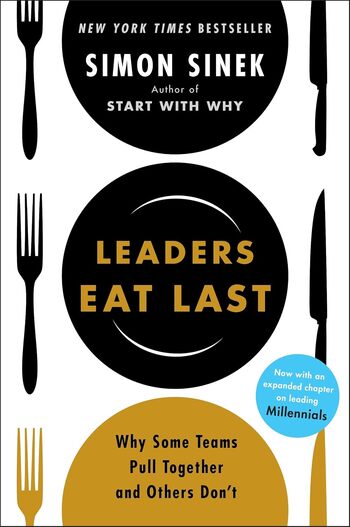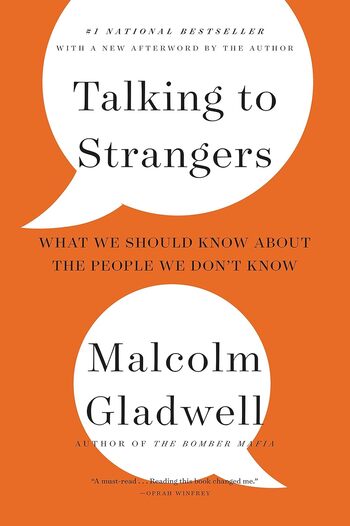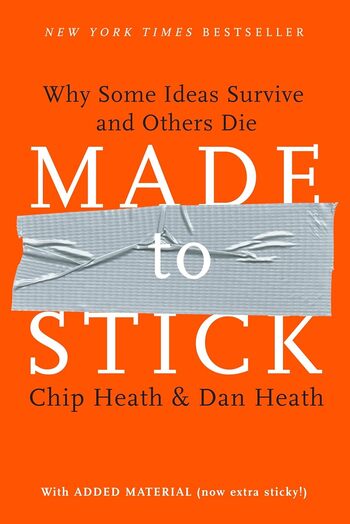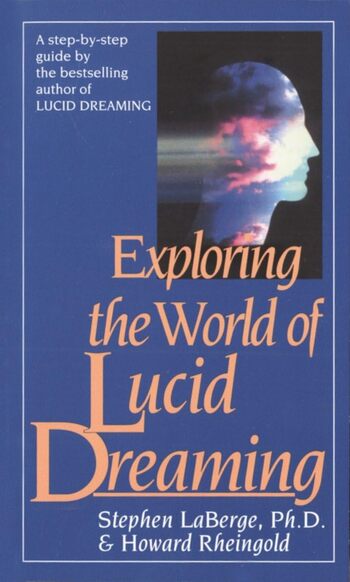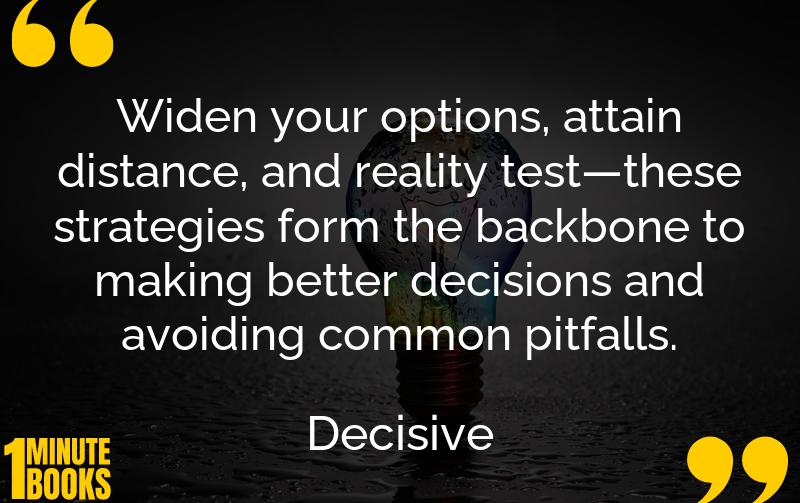
Decisive explores common decision-making pitfalls and provides strategies to make more informed choices. Chip and Dan Heath offer a framework using the acronym WAR: widen options, attain emotional distance, and reality test.
Main Lessons
- Important decisions often suffer from a lack of options—consider more than two to increase favorable outcomes.
- Short-term emotions can cloud judgment; distance yourself by considering what advice you’d give a friend.
- A false sense of certainty leads to overconfidence; routinely reality-test assumptions before committing.
- Use the Vanishing Options Test to eliminate existing choices and discover new possibilities.
- Attaining distance from your emotions helps clear bias when making significant life decisions.
- Before making any decision, imagine what a replacement decision-maker would do.
- Reality testing involves trying out options on a small scale before full commitment.
- Reflect on past decisions you regret and assess if short-term comfort was prioritized over long-term values.
- Organizations should evaluate more than one alternative to reduce decision failure rates.
- Making decisions backed by concrete experimentation or test drives can prevent future regret.
- Recognize that biases such as confirmation bias impact decision accuracy.
- In business, emotional separation from decisions can facilitate smarter strategic choices.
- Approaching decisions with a systematic framework like WAR helps clarify and organize thinking.
- Preparedness for potential setbacks or being wrong allows for more flexible decision-making.

